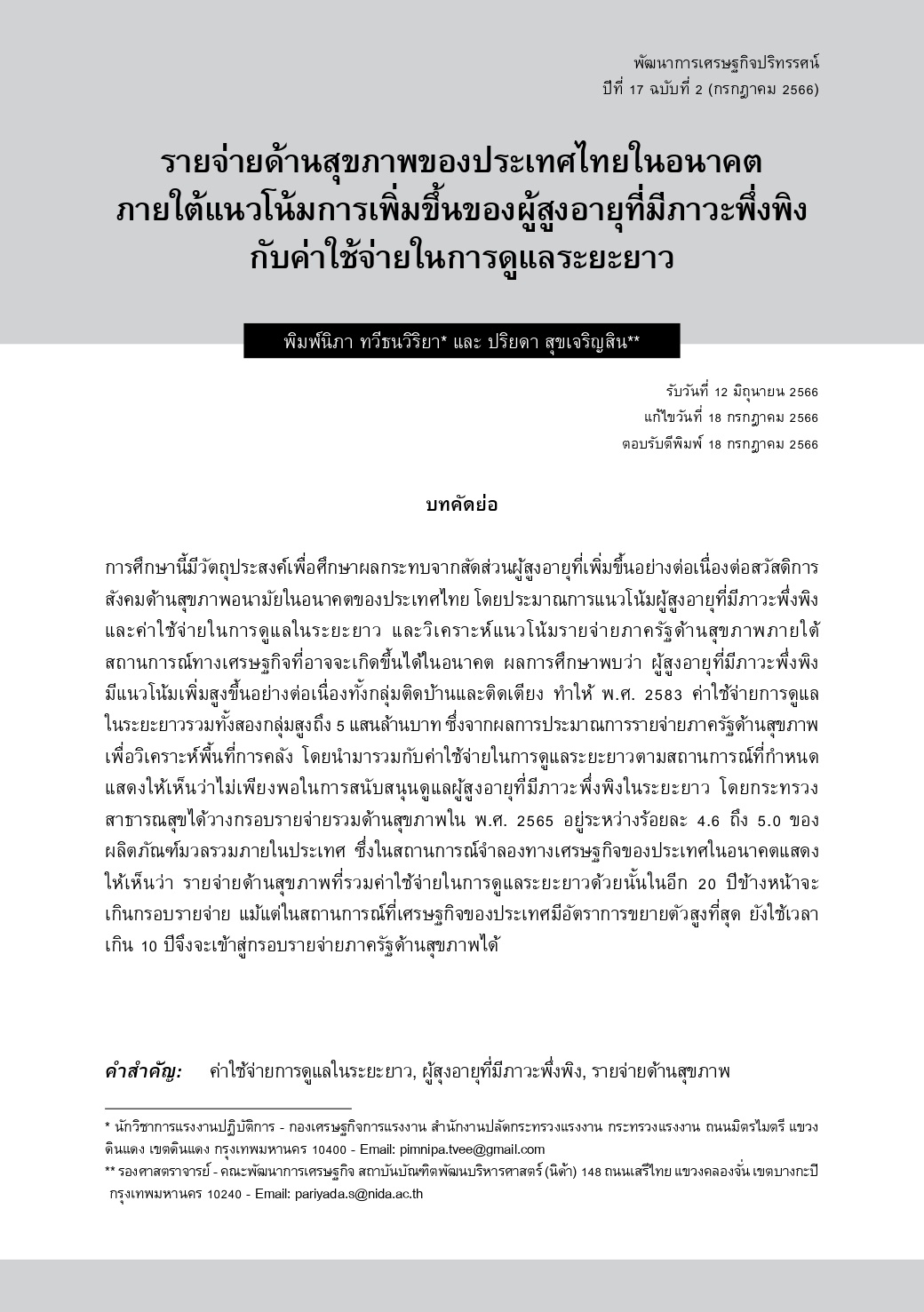Future Health Expenditures in Thailand under the Increasing Trend of Dependent Elderly and Long-term Care Costs
Abstract
This study aims to analyze the impact of ageing society on the future health and social welfare of Thailand. We estimate trends of dependent elderly and long-term care costs then analyze the government health expenditures under various future economic scenarios. The results reveal the increasing trends of dependent elderly in Thailand. In 2040, the long-term care costs for dependent elderly will be as high as 500 billion baht. In the analysis of fiscal space under future scenarios, we combine health expenditures with long-term care costs. The results show that government health expenditures are insufficient to support long-term care for dependent elderly. The Ministry of Public Health has set a framework for total health expenditure not exceeding 5 percent of GDP. From the scenario analysis of the next 20 years, health expenditures, including long-term care costs, will exceed the expenditure framework every year. Even in scenario where the economy is experiencing the highest growth rate, it still takes more than 10 years to follow the government health expenditure framework.

Downloads
Published
Issue
Section
License
Copyright to published manuscripts becomes the property of the Graduate School of Development Economics, National Institute of Development Administration. Reproduction of all or part of a Development Economic Review (DER) article by anyone, excluding author(s), is prohibited, unless receiving our permission.
Disclaimer: Opinions expressed in articles published in this journal are those of the author (s) and do nto necessarily represent opinions of the Graduate School of Development Economics, National Institute of Development Administration. Trade and proprietary names are only for identification and not constitute our endorsement.

